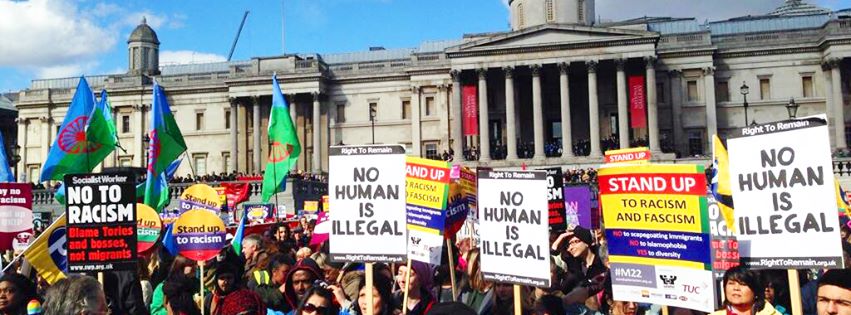The Real World

October 2015 The Psychologist, 28 (10).
Can a single picture change the course of history? Will the image of three year old Aylan Kurdi’s dead body on a Turkish beach change the way we respond to those fleeing economic and political turmoil around the world?
Certainly something seems to have changed. In the ensuing weeks there have been a spate of events we may have thought we would never see. Cheering crowds welcoming refugees at Munich station. Hundreds of thousands petitioning Parliament. Convoys of aid to the Calais camps massively over-subscribed. Impromptu acts of solidarity springing up across the country. In Tayport, the small village next to me (SR), a collection is being held for Syria. On nearby Broughty Ferry beach hundreds turned out in the pouring rain for a vigil.
But exactly what has changed is unclear. It could be that non-one has actually changed their minds, but suddenly those who abhorred the demonization of migrants have realised that they were not alone. This would fit with a fascinating literature which suggests that the media doesn’t so much influence what people think, but what they think others think (meta-representations rather than representations). But this still matters because it affects what we are prepared to do. Once we feel that we are not alone, that ours is part of a collective voice, we are much more willing to act in public.
That is important, but it isn’t all that is going on. In a recent article on the BBC website, the Home Editor, Mark Easton, struggled to accept that Aylan’s picture could have made a difference. It “may have pricked our conscience”, he concluded, “but I doubt it has changed our mind”.
Easton’s perplexity was premised on the assumption that we are of one mind. We must either be for opening our borders to more people, or for keeping them shut. We can’t be both. And the evidence is overwhelming as to where we stand. Over recent decades British Social Attitudes surveys consistently tell us that some ten times as many people want the number of migrants to be reduced as want it to be increased – and the level of rejection continues to grow.
Yet consider the questions that are asked: Do you want more migrants (or refugees, or asylum seekers) in the country? Already people have been labelled. Not only are they ‘not us’, they belong to a particularly pathologised category. On the one hand, the word ‘bogus’ always haunts these terms and was again invoked by Cameron when, after Aylan, he insisted that Britain is open to genuine refugees and asylum seekers. On the other hand, the term is associated with notions of invasion, pollution, exploitation.
So if you ask ‘do you want more migrants’ it is not far from asking ‘do you want alien hordes who threaten much of what you hold near and dear’. It is not surprising the answer is no. But the answer is produced through the terms in which the question is asked.
What Aylan’s image did was to shift these terms. It led us to recategorise the subject of the question. For Aylan became a little boy rather than a migrant. Abdullah Kurdi became a father to that boy rather than a migrant. And through them others began to be recategorised as less alien, less toxic, and indeed members of the same groups as ourselves.
Now, if you ask ‘Do you want more orphaned children?’ you will get very different responses to ‘Do you want more migrants?’ It is not that we have changed our minds about the same question, it is that the question has changed. And we are entirely capable of answering these different questions in different ways. In this way, we can be of many minds about those seeking to cross our borders.
These issues of language and categorisation have long been understood by those at the sharp end. A while back we investigated the way Bulgarians were successfully mobilised to stop the Nazis deporting Jews to the death camps. A key element in this was a refusal to separate out people as Jews. Jews were Bulgarians. A national minority was under threat. This was an attack on ‘us’, not on ‘them’.
More recently, Caoimhe Ryan, at St. Andrews, has completed a three-year study of anti-deportation campaigns in the UK. She again shows how these consistently refuse categories which render people as ‘other’. They are fellow Mancunians or Glaswegians, fellow parents, mothers and father, ordinary people like us. What is more, Caoimhe has shown that appeals based on common categorisation (‘being one of us’) actually work. They mobilise compassion and support – indeed they do so even more than describing those in need simply as ‘people’.
So, language – and more specifically the way we use terms that categorise people as either ‘or us’ or as ‘other’ – is critical to our responses. As long as we describe current events as a ‘migrant crisis’ we perpetuate rather than address the issues.
And certainly, a migrant is not a migrant by any other name. Or when endowed with a name. Aylan.
The Real World
It's a man's (virtual) world
June 2014
Putin: The Naked Truth
April 2014
Genius and creativity (re)explained
October 2013
In praise of asylums
September 2013
You had to be there
June 2013